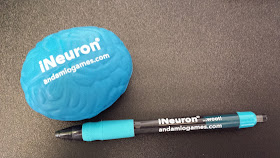
I wonder if this happens to the rest of you: you're glancing through your daily social media feed, or the newspaper, or your email, and to stumble upon a really awful article about psychology (or claims to be about psychology). It's usually a summary of research that is either horribly incomplete, or flat out wrong. Does that happen to you?
It happens to me. Often. My usual response is to tweet it out there with some expression of frustration ("Ugh" "Argh!!" "No!!!" etc.) but maybe it's time to collaborate and ramp up our responses.
If you find an article, blog post, etc. that makes some horrifying claim related to psychology, please either put it in the comments here or send me the link at rmcenta@lps.org. I'll work on making some sort of "Hall of Shame." Might turn into a good activity for students? They could play "find the worst mistake?"
Here's my nomination for the Hall of Shame:
I think I counted ONE sentence that is probably completely correct (for the record: it's the first sentence). The rest of it... oh my. I'm not a bio-psychologist, but even I can spot the over generalizations, misrepresentations, and general goofiness in there. Whew. (thanks to
@Neuro_Skeptic for finding the article - if you don't follow her/his twitter feed, you should!)
posted by Rob McEntarffer




